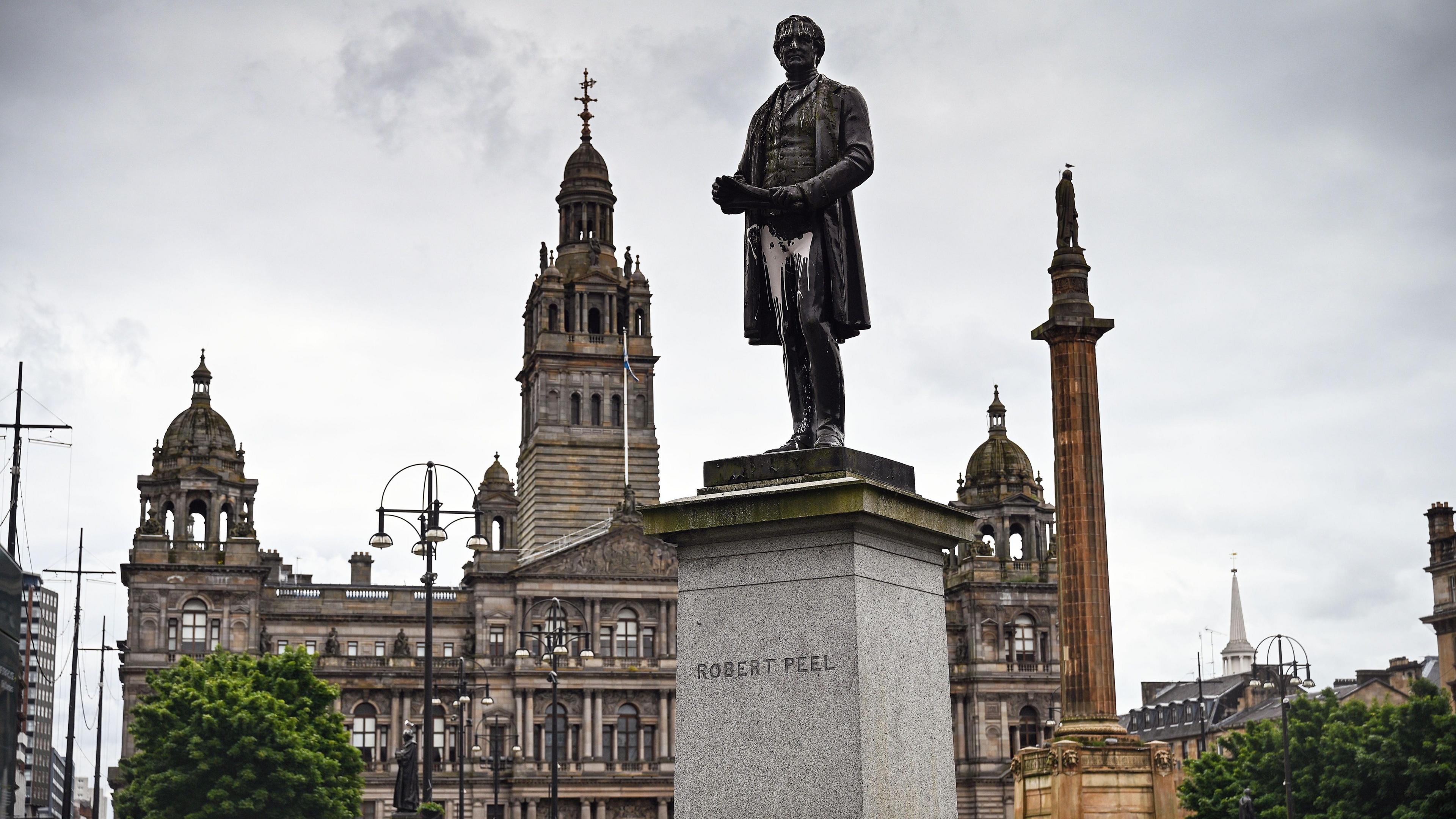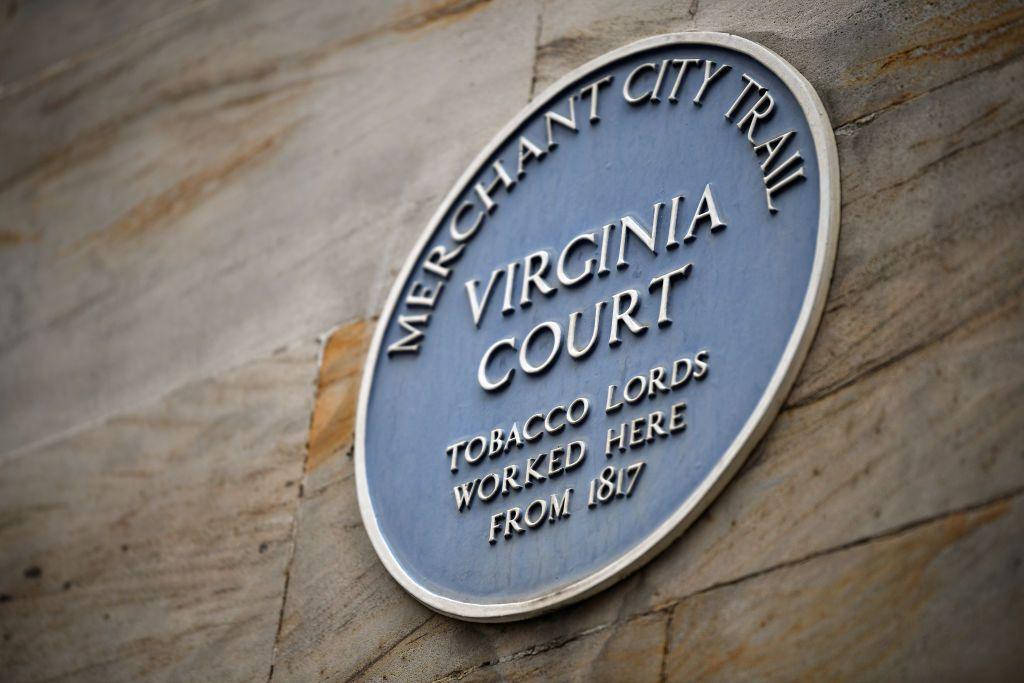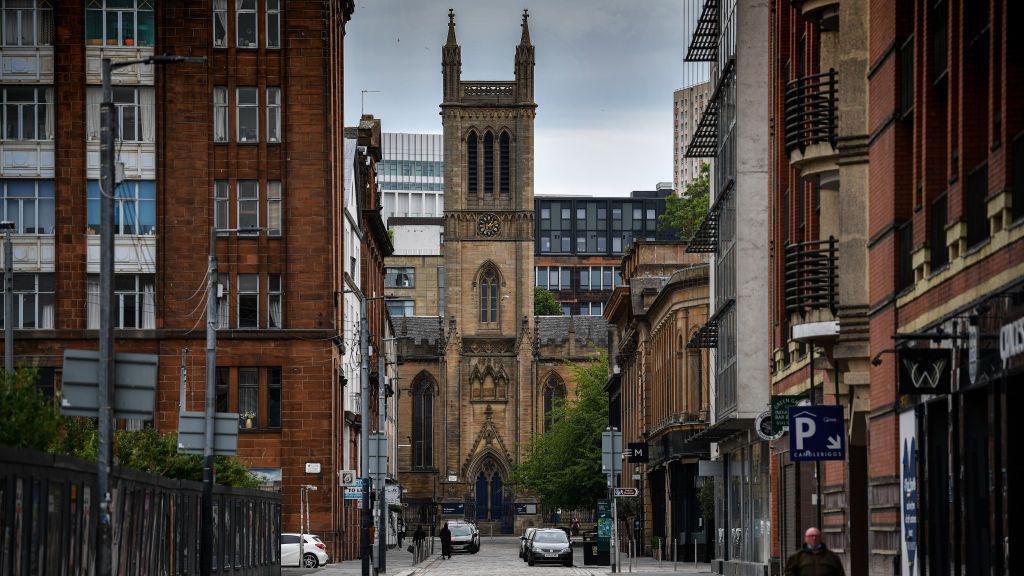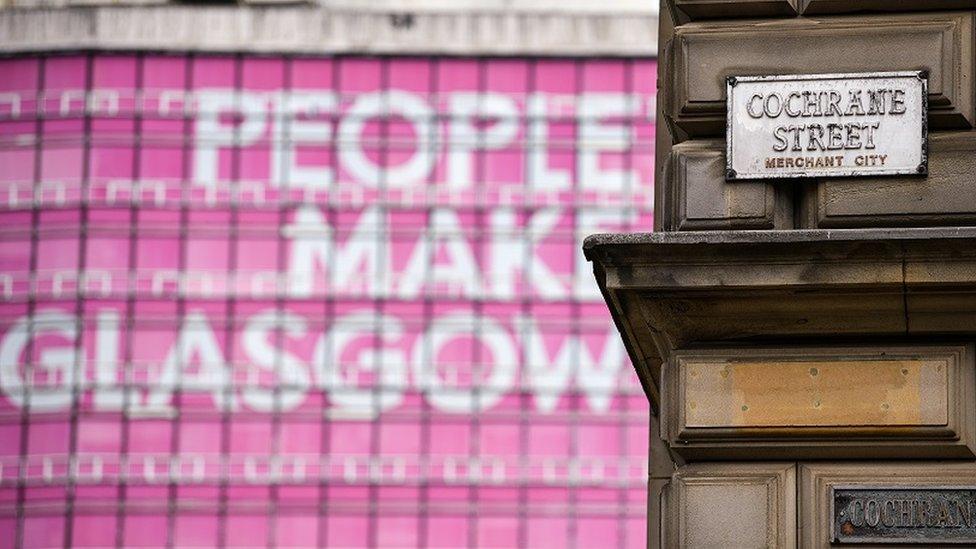Racist abuse curtails consultation on Glasgow slavery links

A statue of Robert Peel - the prime minister whose father had links to the slave trade - in Glasgow's George Square
- Published
Glasgow City Council curtailed a public consultation on the city's links with the slave trade because of "online hostility and racist abuse", officials say.
The consultation was supposed to run from January until May 2023 to gather views on plans for a slavery and colonial trail, but was cut short in March that year.
In a report to a council committee last week, an official said the engagement received during the process had been "significantly affected" by racist abuse, "despite careful planning".
A council spokesman said the abuse was "obviously unacceptable", but that it had still managed to gather valuable insights for the visitor trail.
He added the council believed the hostility was "likely to have discouraged some people from taking part".
Glasgow was a major trade route for sugar and tobacco for the slave states of America and the West Indies.
The city has 62 streets and locations with historic connections to slavery – including Buchanan Street – as well as a number of buildings, while eight figures linked to the trade are also commemorated across monuments in the city.
King William III, whose monument is near Cathedral Square, was a shareholder in the Royal African Company.
James Watt, the steam engineer, was involved with colonial commerce in Glasgow in the 1750s and 1760s, including the trafficking of a black child named only as Frederick.
Others, such as MPs William Ewart Gladstone and James Oswald, inherited wealth tied to slavery and promoted the interests of enslavers in the British Parliament.
In 2022 the council issued an apology on behalf of the city to the descendants of enslaved people and the nations affected.
The city-wide trail - planned to launch next spring - aims to ensure the city's role in the slave trade continues to be "acknowledged, understood and remembered", according to a council paper.
The public consultation launched in an attempt to gather public opinion on how best to address those legacies.

However a report to the the wellbeing, equalities, communities, culture and engagement city policy committee highlighted hostile responses to the consultation.
It said: "Between January and March 2023 we used the CONSUL citizen engagement platform to gather public views.
"It is fair to say this was a difficult process significantly affected by online hostility and racist abuse. However we did manage to pull together some valuable insights from that to give us guidance about next steps."
The findings are now being taken forward through the heritage trail.
Councillor Eva Murray said she "was incredibly sad and actually quite angry" to hear about the online abuse.
She said if any of the culprits were identified she hopes the matter was taken up with the police.
Bailie Murray added: "Ultimately these people want us to stop talking about stuff, stop engaging and allowing people have their say. I commend you all for continuing with the work and getting to where we are today."
The slavery and colonial trail will be funded by the local authority's city stories fund.
Information used for the trail will be based on research by Dr Stephen Mullen, a lecturer at the University of Glasgow.
- Published7 November

- Published9 June 2020

- Published26 October 2018
